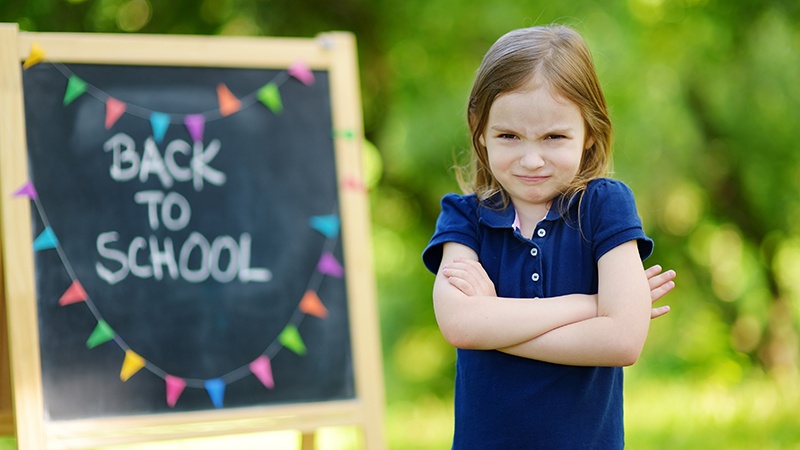No Preschool Kid Benefits from Getting Suspended or Expelled
Leer en español
Children are often insolent, but taking them out of school isn’t the answer. Photo via DepositPhotos
By Kristin Jones
Three-year-olds refuse to put their clothes on when you ask them to. They knock things over and don’t clean up properly. They might hit or pinch or throw themselves on the floor in a rage. That’s why we call them “threenagers.”
Preschools’ responses to this developmentally appropriate behavior vary widely from teacher to teacher and school to school, from gentle re-direction to suspending or even expelling children from school.
Unfortunately, researchers have found discipline practices also vary depending on a child’s race.
Black boys bear the worst of it. Though black children account for only 19 percent of the children enrolled in preschool nationwide, they make up 47 percent of those preschool children who received an out-of-school suspension one or more times, according to Department of Education data. And 82 percent of the preschool children suspended more than once were boys.
Recent research from the Yale Child Study Center found that teachers are more likely to detect bad behavior in black preschool children than white children—even when there’s no bad behavior to detect.
It’s this racial injustice that Denver organization and Colorado Trust grantee Padres & Jóvenes Unidos was focused on when the nonprofit began advocating for an end to suspensions and expulsions for very young children in the state.
Preschools don’t have to report suspensions and expulsions, so it was hard to pin down the racial disparity in Colorado. But when the organization surveyed parents in Denver’s largely Latino neighborhoods of southwest Denver, they found that 41 percent of them said their child’s preschool occasionally or frequently suspended or expelled students.
This disparity “conditions blacks and whites and Latinos to different reactions and responses,” says Ricardo Martinez, co-executive director of Padres & Jóvenes Unidos. Children of color experience that they’re treated differently; their white peers see the same thing. “We know that children are super observant. They pick up all these social cues, and they get normalized.”
The practice also exacerbated another problem, the organization found. High-quality preschool can help kids succeed in school later on. But it can be extremely hard to access in Colorado, due to cost and availability barriers; suspending or expelling children puts preschool out of reach for some families who had succeeded in getting their kids in the door.
On March 15, officials from Denver Public Schools demonstrated leadership when they announced a plan to ban the practice of suspending or expelling young children from preschool to third grade, except in rare cases when a child poses a threat to other children. The idea is also gaining traction at a state level, where a proposed law to similarly restrict the practice is making its way through the legislature.
This is undoubtedly good news for the kids who were most affected by this practice. But—importantly—it’s also good for any parent of a preschool-age kid.
No parent wants to get a call from a teacher telling them to pick their toddler up from school in the middle of the day. And every parent knows from experience that all kids have bad days.
“It’s not a good practice for any child,” says Martinez. “They don’t understand why they’re being expelled or suspended; they just think they’re being abandoned.”
Troublesome as they can be, all children deserve kindness from their teachers, a safe environment, and a chance to learn how to keep their socks on, clean up their messes and play nicely with their friends.